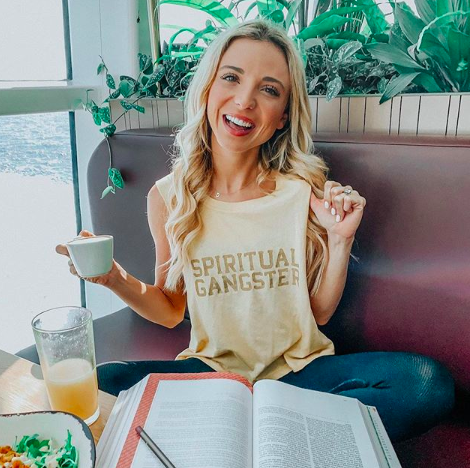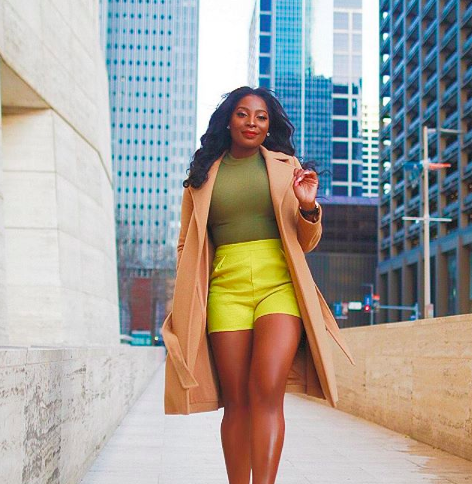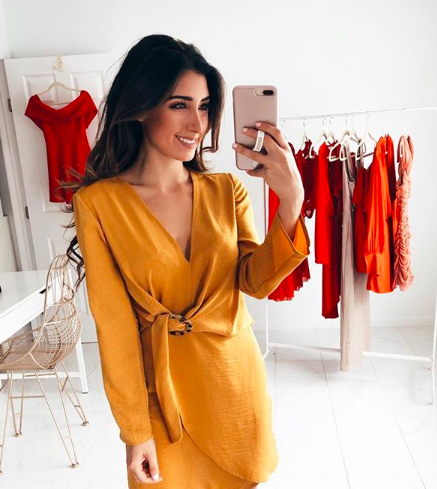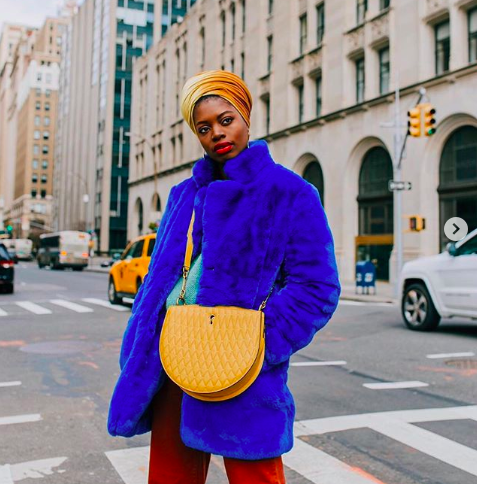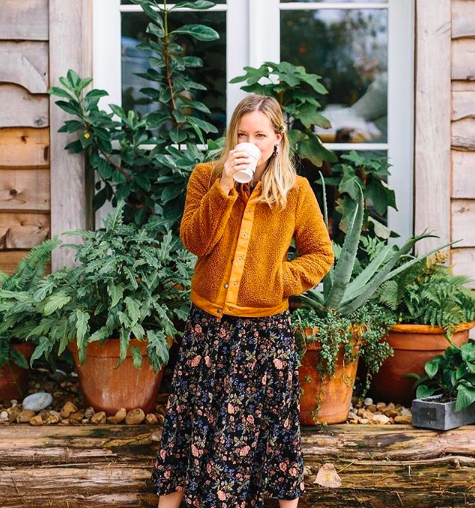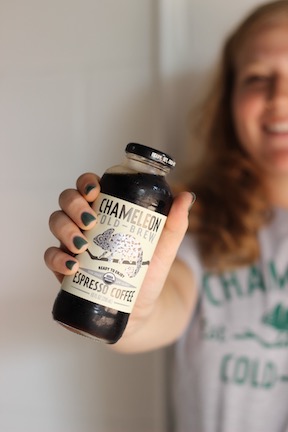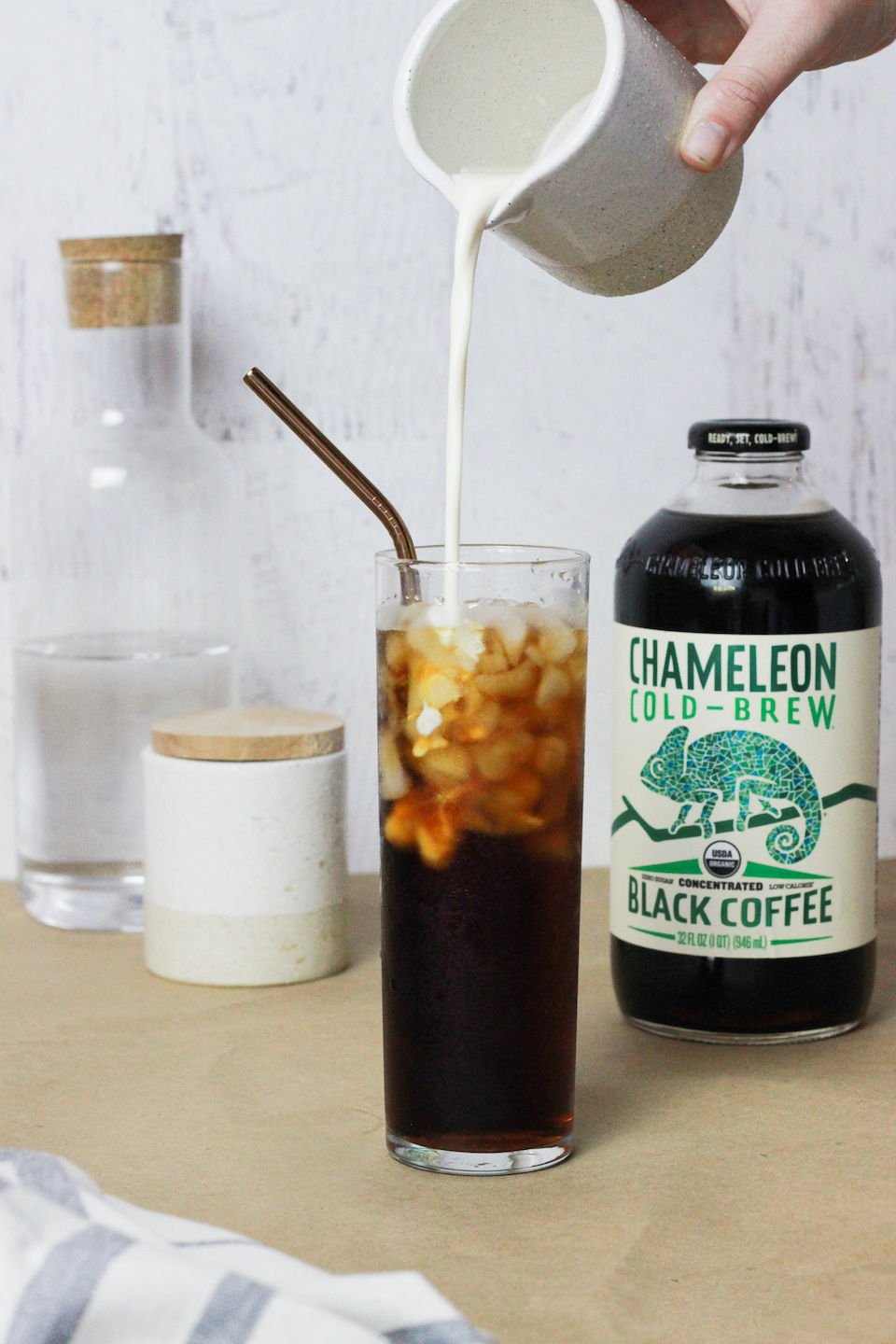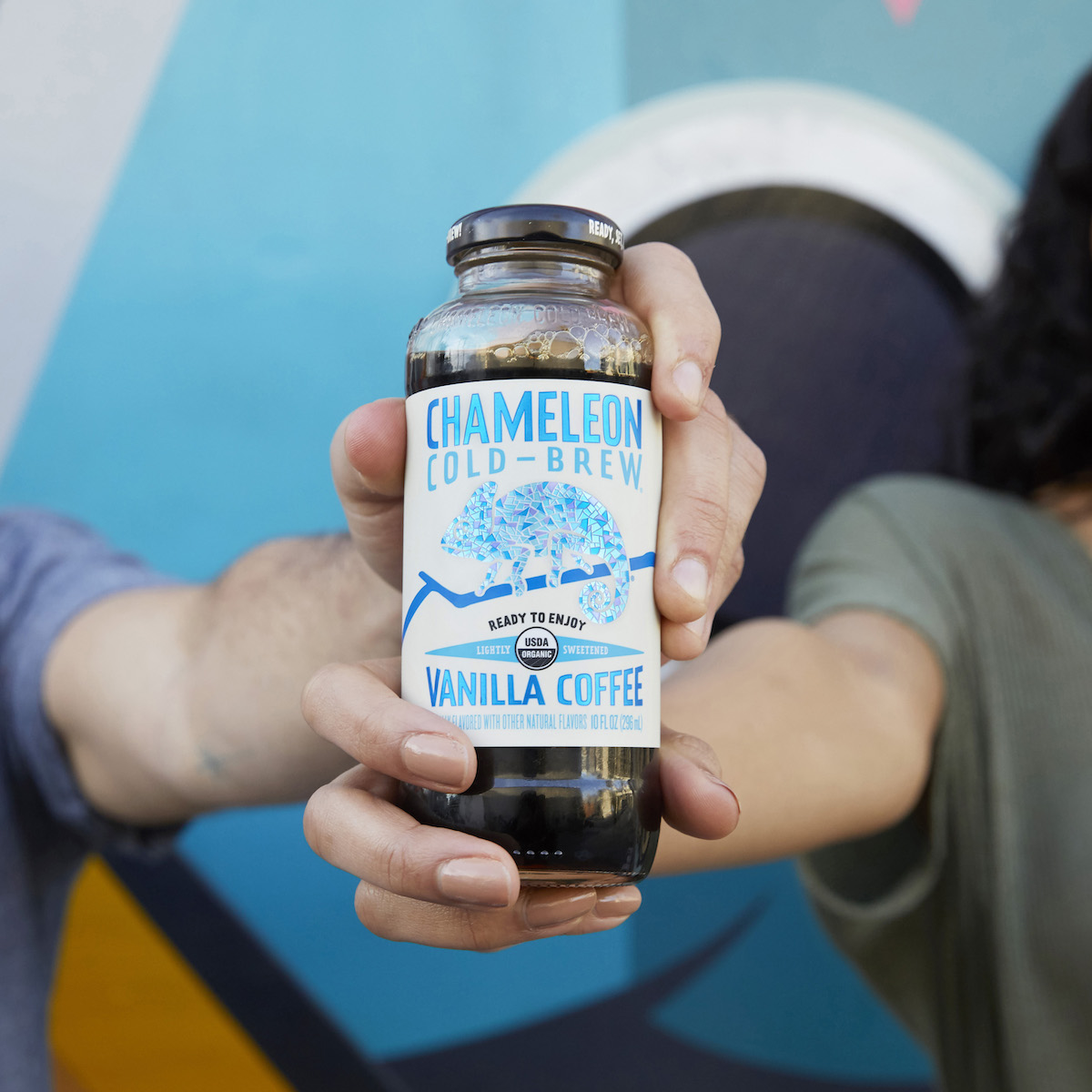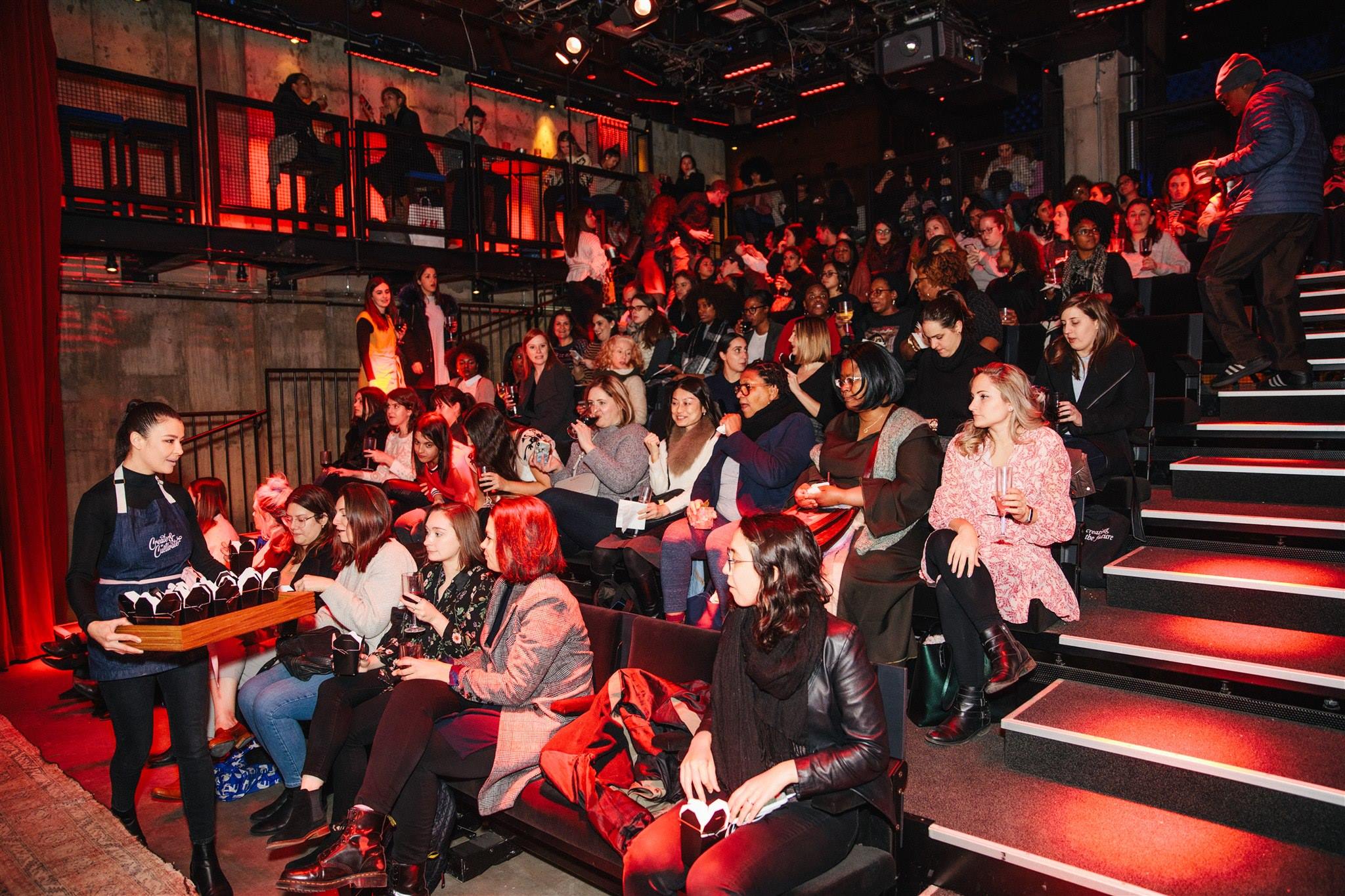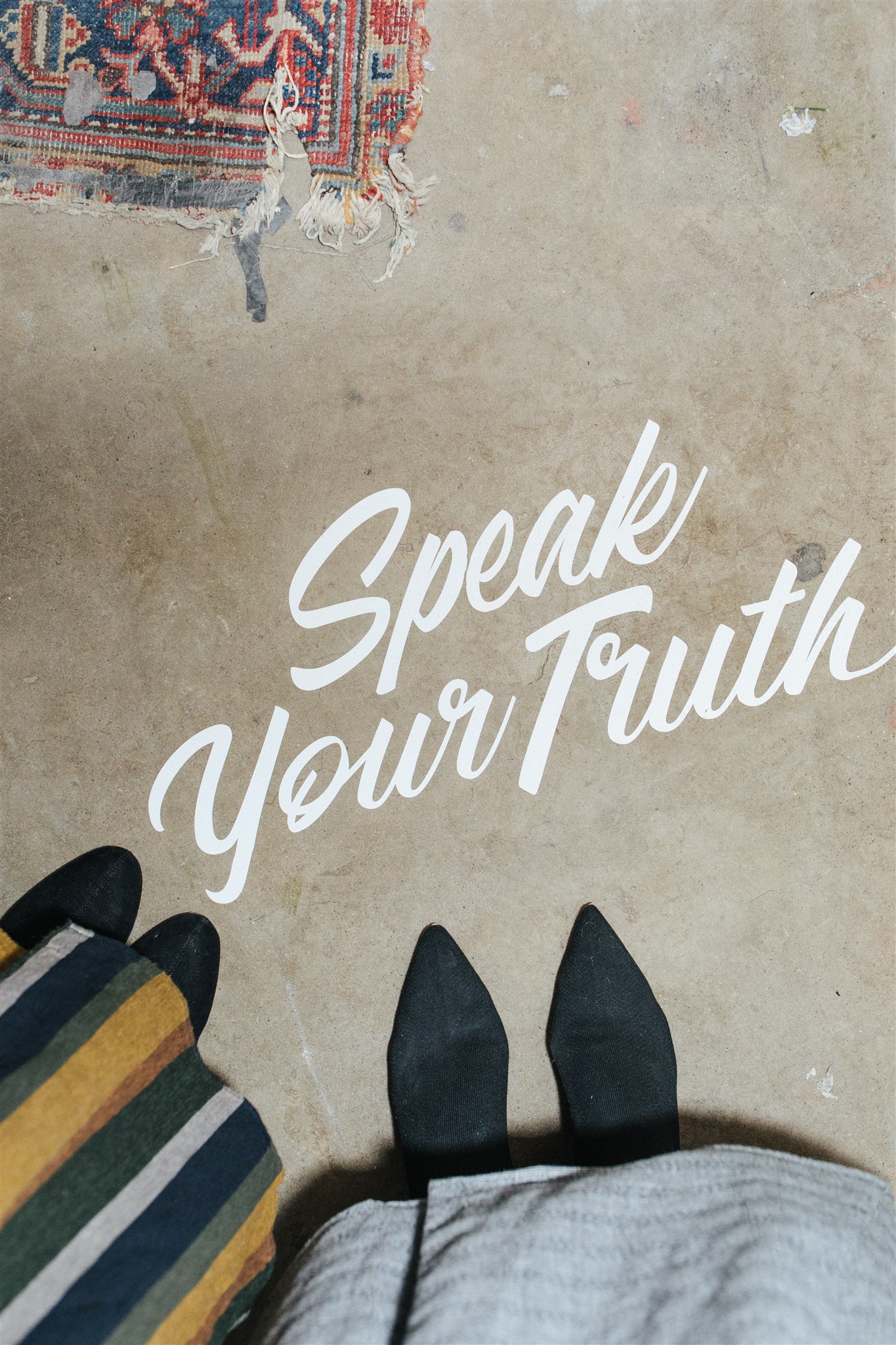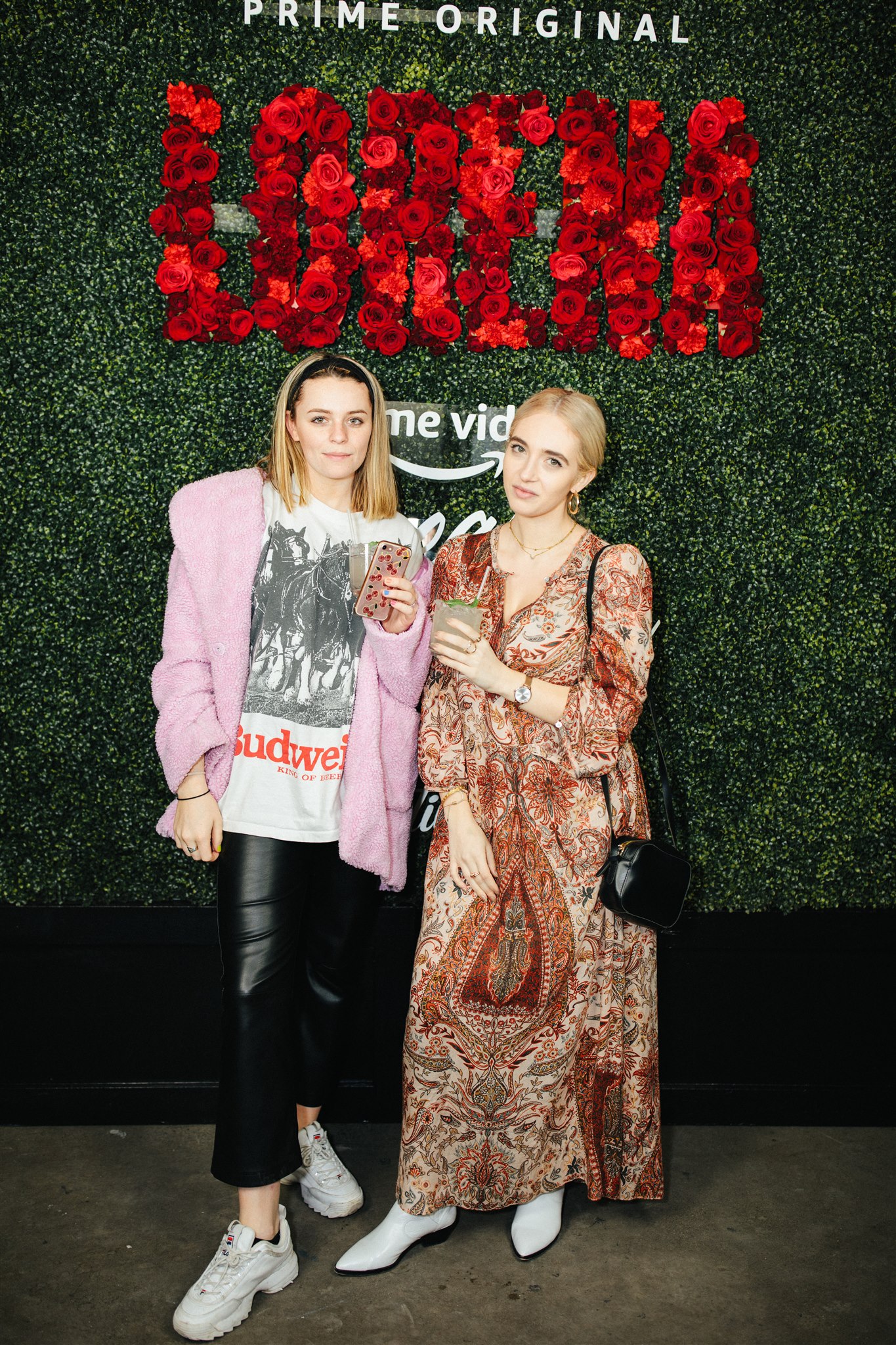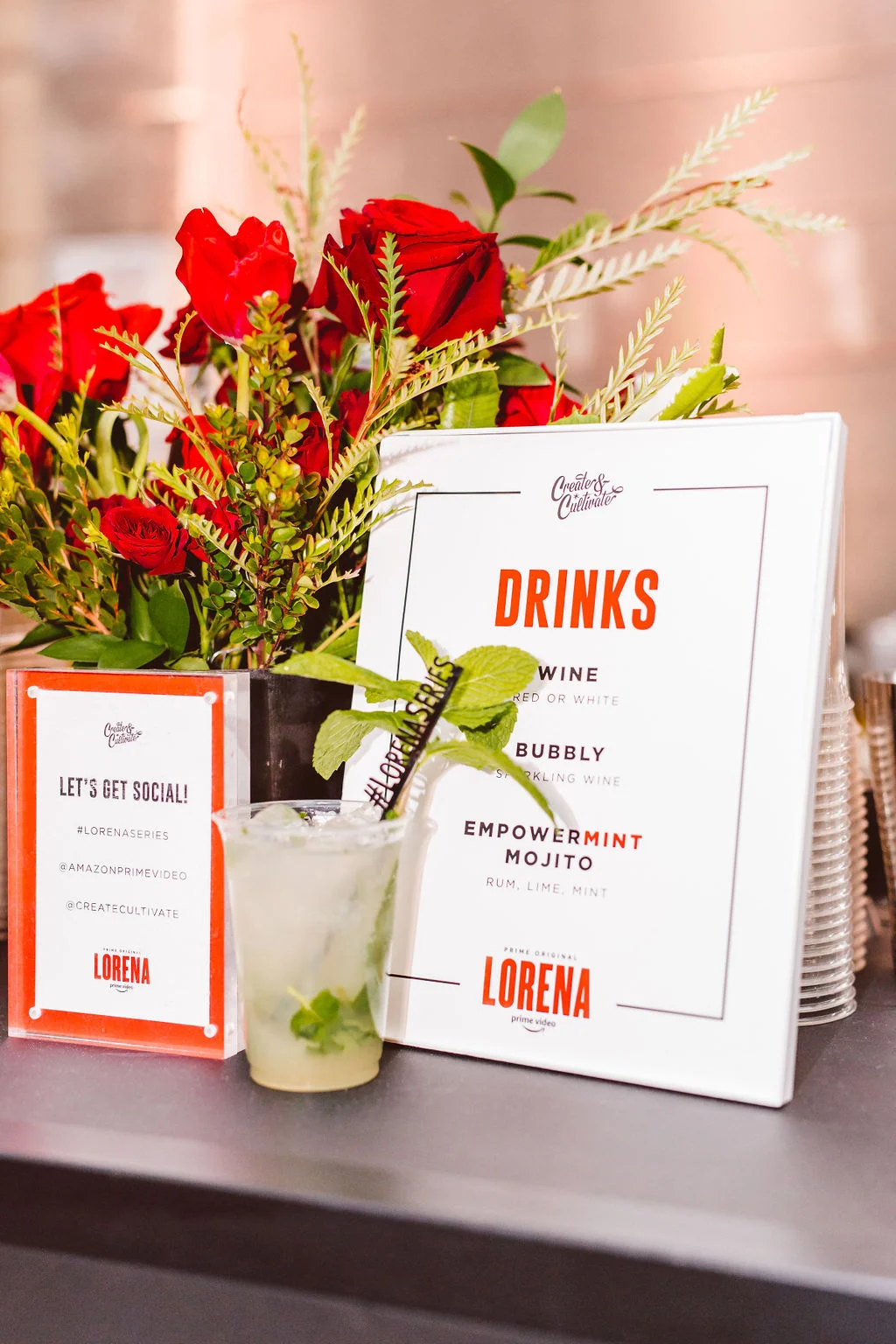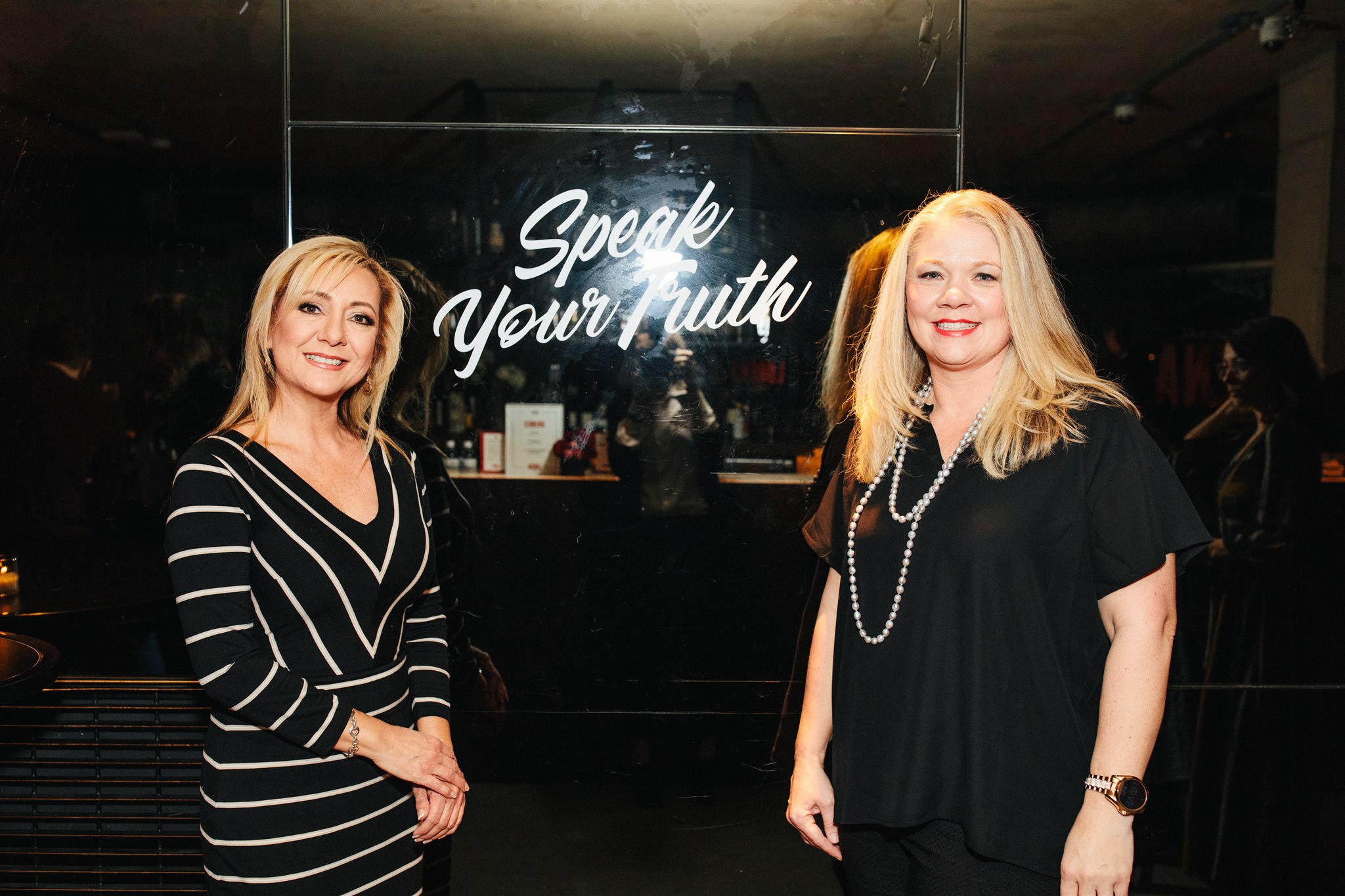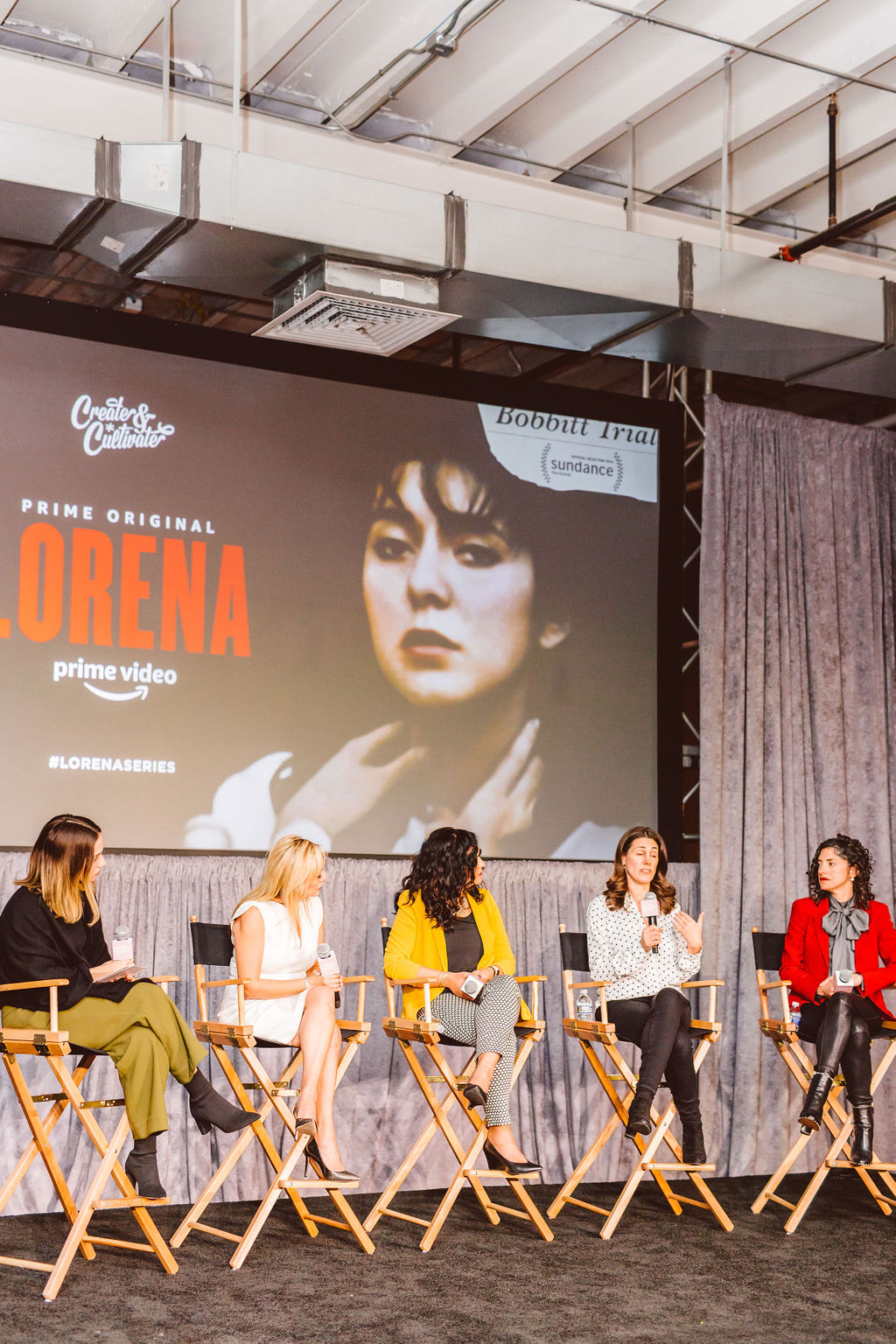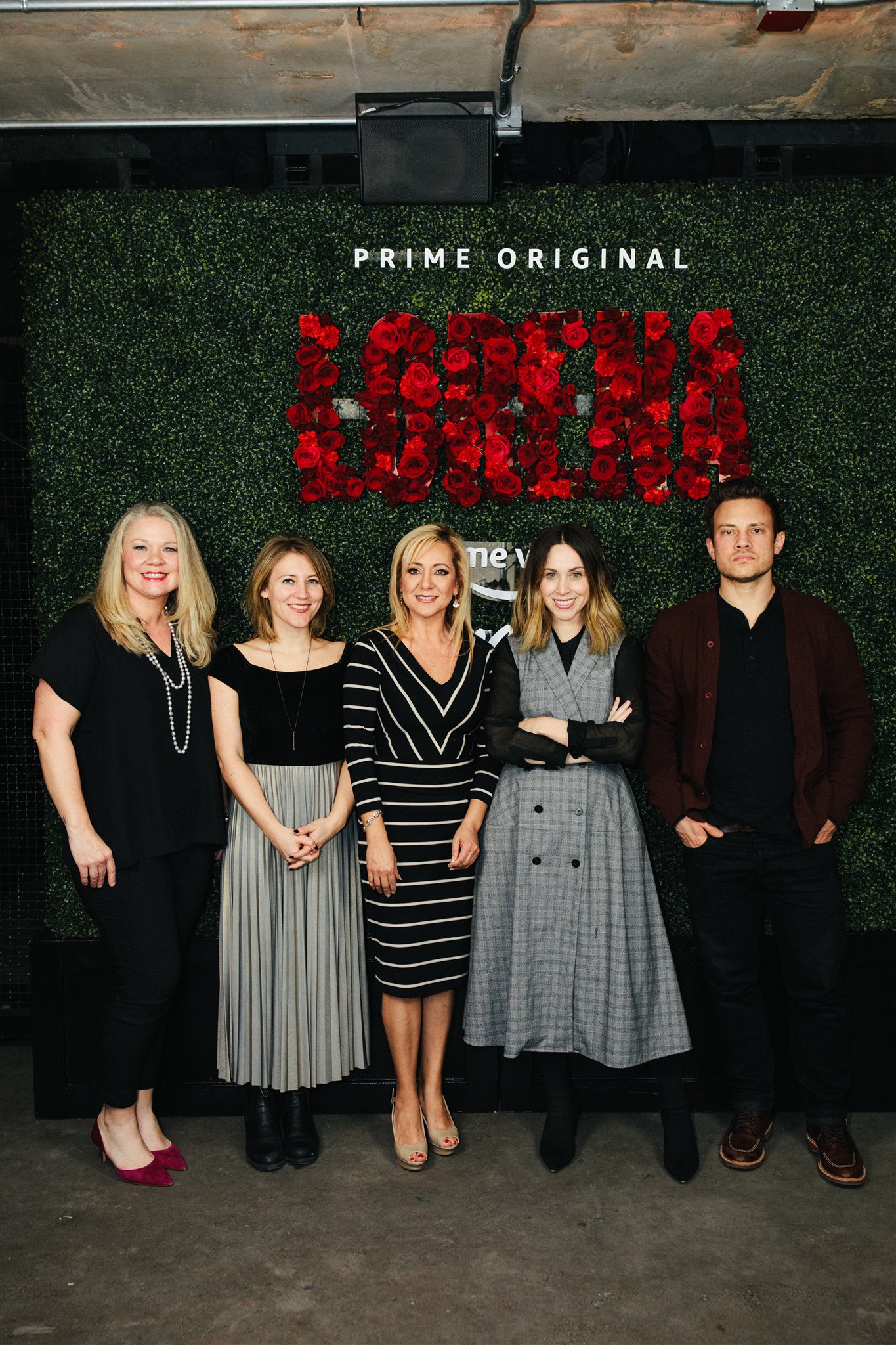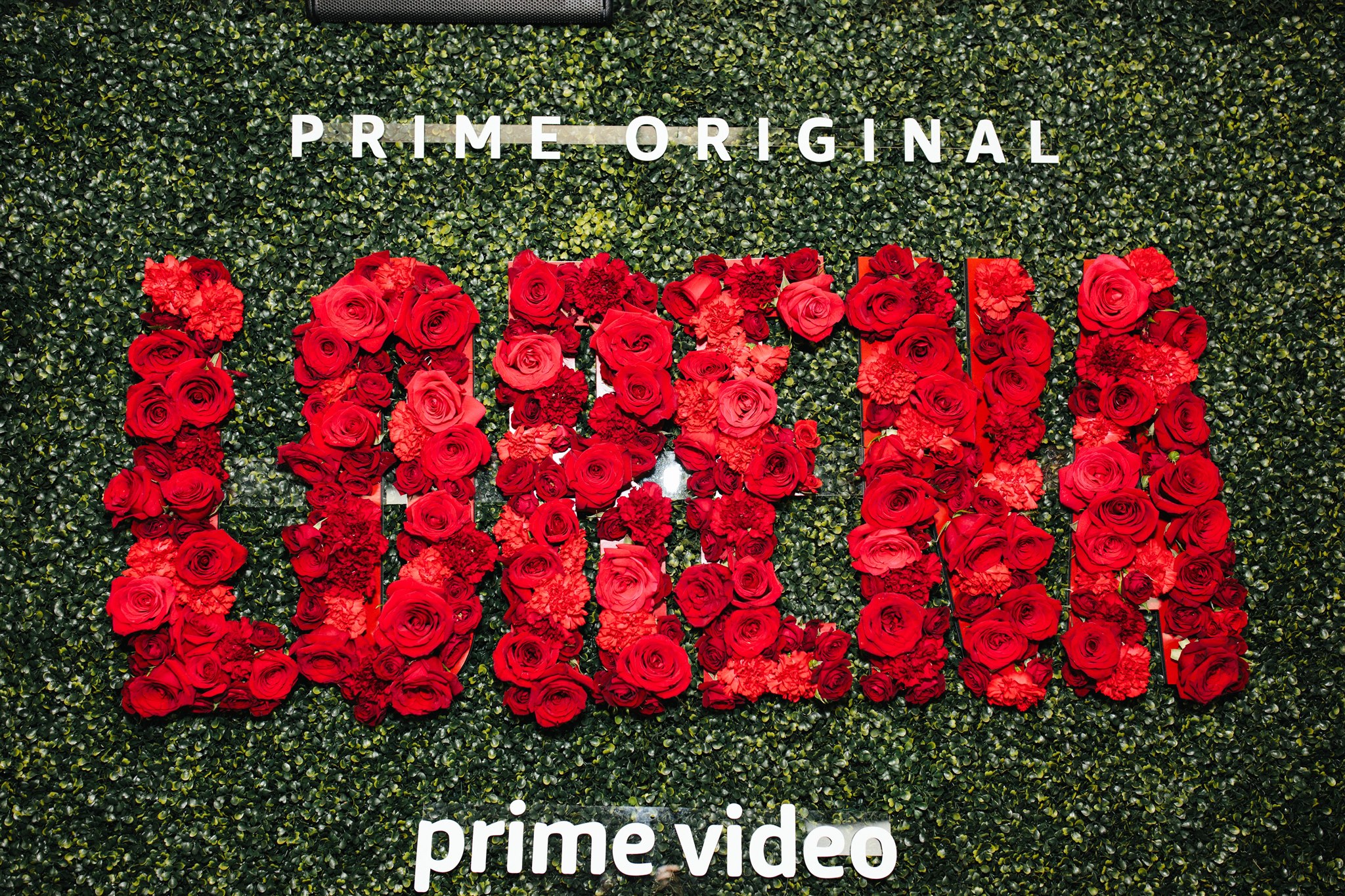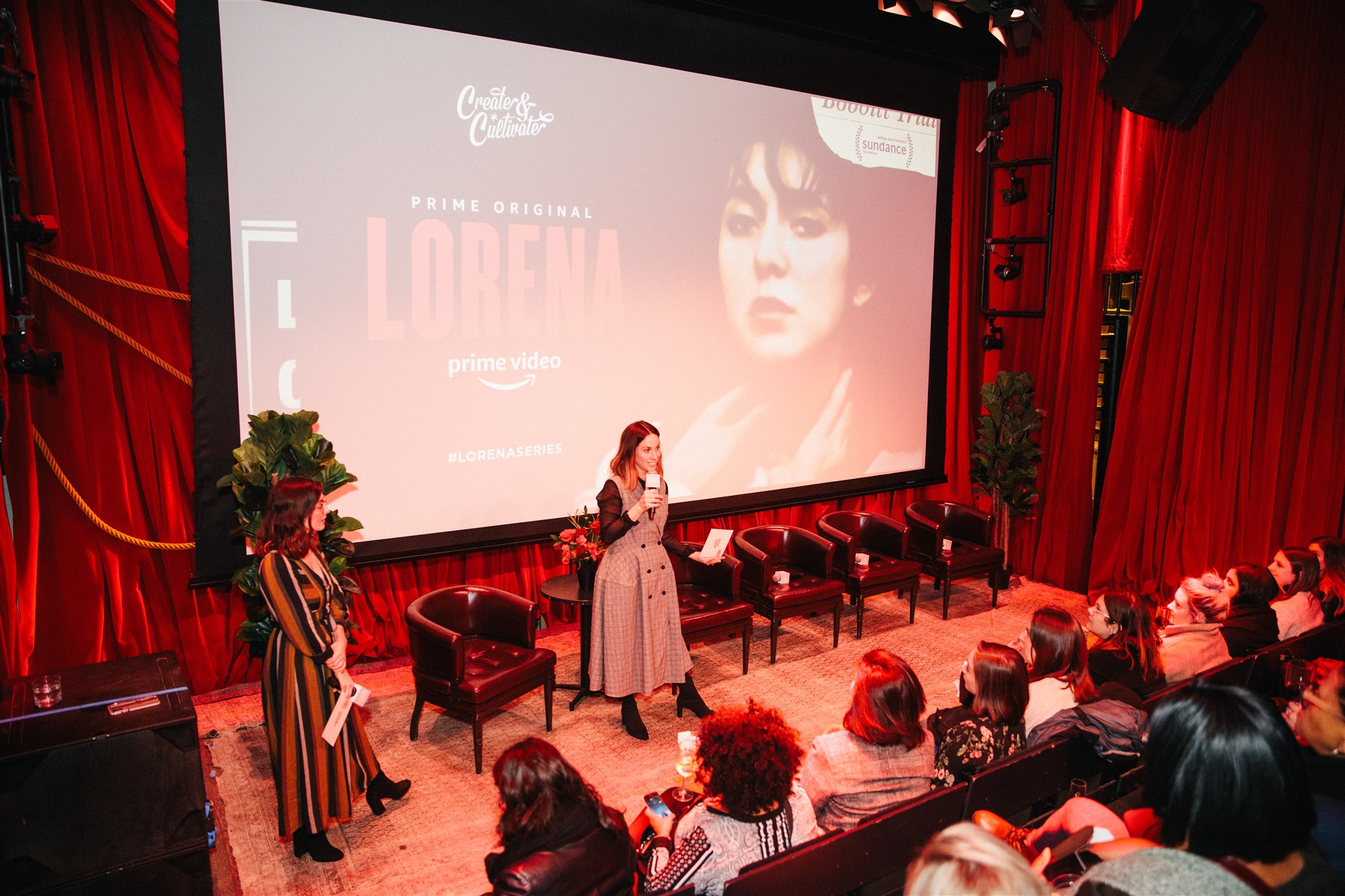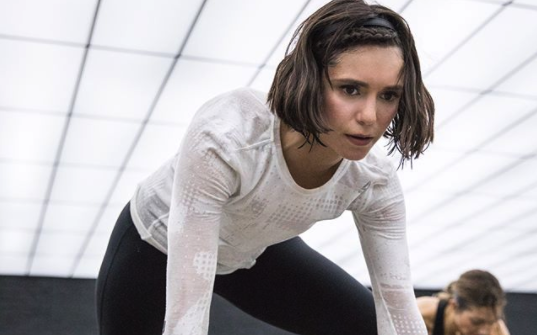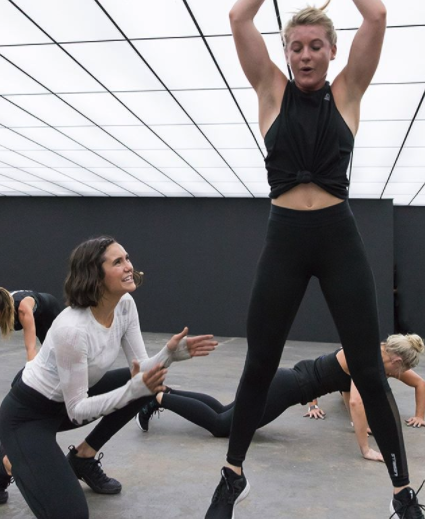How These 5 Entrepreneurs Kick-Start Their Mornings
“Running has a way of clearing my head and setting me up for success for the rest of the day.”
Mornings: You either love ‘em or hate ‘em. While many of us might be squarely on the “snooze, repeat” end of the spectrum, others love doing their hardest work before the sun is up. Exactly how do the influencers we know and love make their own mornings better? We partnered with Chameleon Coffee, creators of our favorite cold brew, to find out.
Below, we’re chatting with Dani Austin, Jessi Afshin, Agatha Ashiofu, Paola Mathé, and Jen Pinkston on wake-up call times, coffee routines, and their favorite time of day to hustle hard.
Are you a night owl or a morning person? When do you do your most important work and why?
Paola: I'm naturally a night owl, but I had to adjust my lifestyle since I'm a new mom. Most of my brainstorming and solution solving come in the quiet sounds of the night after my husband and baby are both deeply asleep. Everything else happens during the day.
Dani: I am kind of both. In my most productive of weeks, I usually wake up around 7 a.m., run for two miles to get my brain moving and clear, and that helps set me up for success the rest of the day. However, when it gets cold outside I find myself working later and sleeping later. If I am in my early morning routine then I do my most important work in the morning because I’m inspired. If I am in my late-night routine, my husband gets onto me because my inspiration usually hits at 5 p.m. which is really funny.
JessI: I am a morning person! I actually set my alarm extra early every morning to schedule in quiet time at my local coffee shop. I get all important work and writing done early morning as it is when I am most focused! I literally never miss a day.
Agatha: I'm mostly a night owl because I work on my side hustle after my 9-to-5 job.
Jen: My whole life before having kids I was a night owl. It's naturally how I'm wired. However, post-kids that just doesn't work, so now I'm rigid about making sure I get 8 hours of sleep each night which means I'm usually in bed by 9:30! I still get some of my best ideas in the evening but instead of running with them immediately, I make a note in a notebook by my bed or a new email draft and return to it in the morning. Honestly, it's a nice system because some times in the morning things don't seem like the genius idea that they did 12 hours prior.
What time do you get up? What’s the first thing you do upon waking?
Dani: I usually get up at 7 a.m. in the spring and summer and 8:30 a.m. in the winter. I guess I have hibernation patterns in the winter. I usually always like to have fruit for breakfast because I’ve never been a big breakfast eater even though it’s the most important meal of the day. My best mornings are when I exercise first. Running has a way of clearing my head and setting me up for success for the rest of the day.
Jessi: I wake up around 6am everyday. After a morning of prayer and mediation - I start working as early as 8am. I am a writer and it’s the time I write best!
Jen: My current alarm clock is my 18 month old daughter who wakes around 6:15am, so the first thing I do in the morning is snuggle a baby which might actually be the best possible way in the whole world to wake up! Oh my gosh, what am I going to do in a year when she's a kid?!
Agatha: I get up at 5:30am and snooze my alarm a million times till I get out of bed.
Paola: I wake up between 6-7 a.m. each morning, mostly by a cranky, hungry baby. Before that, when I lived in NYC, I enjoyed waking up a 6 a.m. to exercise. I find that my routine is constantly changing and I just have to find ways to adapt to the new one as my baby gets older. The first thing I do upon waking up is greet Zuli (my baby) in a high pitched voice. She loves it, and her smile brightens the day. Then, I take her to the bathroom with me to brush our teeth. She only has 2.5 teeth, but she likes to be included in this routine. Lastly, I go downstairs to our kitchen and ask Alexa to pay "Black Coffee” (the album) by Peggy Lee. I feed my daughter and make coffee/breakfast for myself.
“I find that my routine is constantly changing and I just have to find ways to adapt to the new one as my baby gets older.”
What’s your coffee ritual? How do you take your coffee?
Jen: I have been making lattes in the morning since I was 25 years old and Aaron and I discovered them while we were in Europe. I'm dating myself, but that was 10 years ago! When I had my first baby almost 5 years ago now, she was sensitive to dairy so I started using almond milk and have never gone back. Although, lately I've been known to dabble in oat milk. I've never sounded more millennial than I do right now. But yes, the more succinct answer is that I'm an almond milk latte girl, through and through.
Dani: Coffee actually makes me anxious and jittery and so I don’t usually drink my own—instead, my ritual is to steal sips of my husband’s every morning.
Paola: I grind the beans using either a hand or electric grinder. Heat up the water in our electric kettle. Then slowly pour in my mug to make the perfect cup of joe. I take it black with no sugar.
Agatha: I drink coffee once a day when I get into the office and I need to kick start my day.
Jessi: I drink a cappuccino every morning from my favorite downtown coffee shop in Austin. It’s my favorite way to tie in prayer journaling and mediation and writing. I also bring my puppy—it’s a morning routine! Coffee gives me fuel!
How do you kick-start your morning? Share in the comments below—and try Chameleon Cold-Brew to get your morning started right.
How #MeToo Has Changed The Way This CEO Runs The National Domestic Violence Hotline
“If I am not my best, then I am not serving survivors the best I can.”
Have you watched the Amazon Prime Video docuseries Lorena yet? It tells the story of Lorena Gallo, who after years of being the victim of domestic violence and marital rape, cut off her husband’s penis in 1993. The media had a field day with the story, overlooking the assault and rape to make a mockery of Lorena’s suffering. Twenty-five years later, though, Lorena is speaking out—alongside several prominent voices in the domestic violence space. Last week, we held a panel and screening series in New York, Washington DC, and San Francisco. We chatted with pros like Katie Ray-Jones, CEO of the National Domestic Violence Hotline, on how violence prevention has changed and the work we still have ahead of us.
Below, Katie shares her thoughts on #MeToo, activism, and the importance of self-care in the world of non-profit work.
Tell us about the career path that brought you to the role of CEO at the National Domestic Violence Hotline. What inspired you to work in the domestic violence field and to work with The Hotline?
From undergraduate school on, my career kept taking me on a path that I wasn’t intentionally seeking. Doors kept opening; opportunities led me to work in the domestic violence field. As an undergrad, I was placed into an internship in a restraining order clinic for domestic violence victims, part of a larger domestic violence service organization. So it was my first real exposure to the issue that allowed me training and education on domestic violence. That job prompted me to want to become a therapist where I would have a private practice and provide individual and group therapy. However, during my master’s program internship I was placed again working with domestic violence survivors. This eventually lead to a job with a multi-service organization where I led the residential and nonresidential domestic violence programs.
When my husband and I had our first child we decided to move from California to Texas, and I accepted a job with the State of Texas, as the state administrator for domestic violence programs. I learned more about The National Domestic Violence Hotline through that role. When an opportunity for a Director position at The Hotline was vacant, I realized I was missing working in a direct service organization and that motivated me to want to start working with The Hotline.
What’s most fulfilling about your job?
When I hear from advocates their experiences working with victims and how they changed someone’s life, that is incredible. Being a part of the growth of the organization and the increase in education and awareness of the complexities of domestic violence has been fulfilling. We see evidence of this growth because of the annual increases in the number of people who reach out to The Hotline. Calls to The Hotline have more than doubled since I came here, and being able to serve more people is amazing to see.
What’s most challenging?
The most challenging part is that with the growth leads to a need to continue to gain resources and continue to fundraise to be able to serve more people. It is incredibly heartbreaking for everyone at The Hotline that we are not able to connect with every person who is reaching out to us for these potentially lifesaving resources, because we lack the funds. That is the challenge because you know there is someone we were not able to serve who desperately needs help.
“When I hear from advocates their experiences working with victims and how they changed someone’s life, that is incredible.”
The Hotline was created in 1994 with the signing of the Violence Against Women Act. Tell us a little about how resources for victims and survivors have changed in the last 25 years, and how you hope they continue to evolve moving forward.
The movement itself has changed over the last 25 years. We have developed a greater understanding through research and survivor experiences to recognize the complexities in each domestic violence incident. For example, we now know the impact of trauma and how important it is to work with the family holistically and remain survivor-centered. Through experience and data, we have also recognized the need to provide culturally specific services to marginalized communities and being able to advocate and serve their specific needs at a greater level than previously. We have more work to do there. We are able to articulate in a more meaningful way to members of Congress the needs of survivors. It’s shelter, it’s therapy, it’s legal advocacy, it's training for law enforcement officers and judges, and educators.
The Hotline was first funded through the Violence Against Women Act, but now it is funded through Health and Human Services, a program called Family Violence and Prevention Act. This allows multiple systems beyond the Justice Department to work together to find a solution. There is not just one service point that will end domestic violence, but it’s a collective effort of multiple systems coming together to support and intervene around the victimization of women.
For example, government agencies who are working with teens and those working on health issues, we know they both are in contact with youth who experience dating violence, so it’s important for there to be a multi-system coordinated response to address the complexities of the needed solution.
The #MeToo movement has created more discussion around sexual assault and domestic violence. We have noticed an increase of 40% in contacts to The Hotline this past year. We believe as a result of more public discourse on the issue, additional media coverage, people in abusive relationships and their friends and family are hearing these conversations, recognizing abuse in their relationships, and reaching out to us for help.
We continue to think about access to services as an organization. Originally we only had services via phone, today we have phone, online chat and text.
What do you think people misunderstand about domestic violence?
First and foremost, people often think it’s a matter of leaving the relationship and the problem just all goes away. But that may be the most dangerous action a victim can take. We also know that without intervention for the abusive partner they have a high risk of abusing again.
We also still encounter people who believe that abuse happens only to the poor and uneducated, or maybe only in certain pockets of the country, so we still do a lot of education and awareness that it can happen to anyone. Domestic Violence does not discriminate.
What should someone know if a loved one is in a domestic violence situation?
This is such a common question for friends and family. Research has shown that women go back to their abusive relationship about 7 times before they actually do leave. There are many reasons for this, first and foremost being love. The survivor remembers the person they fell in love with and still sees glimpses of that person. Their partner is not abusive all the time. Promises are made. The abusive partner often promises to get help, that they will change and the abuse will stop. Often times, the abusive partner has isolated the victim and destroyed their self-esteem.
As a support person, it is important not to judge or tell the victim what they need to do. Offer resources, be a good listener, let them know that you are there for them. Help them think about their safety and connect them with The Hotline. It is important not to bad-mouth the abusive partner. This may prevent your friend from speaking about the relationship in the future. It is important to take good care of yourself through this process as well.
“I’ve gotten better at ensuring I take good care of myself. If I am not my best, then I am not serving survivors the best I can.”
Work-life balance has to be hard in a position like yours. How do you remember to step back and take time for yourself when your work is so constant and directly impactful?
It’s hard for most people who are working in nonprofit to prioritize your personal life knowing that there are people who are encountering really challenging situations and in my current role, knowing there are so many people who still need help. I’ve gotten better at ensuring I take good care of myself. If I am not my best, then I am not serving survivors the best I can. So, one of my strategies is to calendar effectively. I made a commitment to my boys that I will not miss a game, a play or a student conference. Family is my top priority and it is important to me that my husband and boys know they are important to me.
You’ve said previously that a big goal for you is to create intersectionality of domestic violence services with other social justice issues. Tell us about that goal and how the NDVH is joining forces to solve other issues.
We have had a few moments in our organization where we recognized the power of the data that we have. Because we are the only national organization with direct contact with so many survivors across the country, we can recognize trends and help other organizations that are working with different issues such as immigration, reproductive health, firearms, and other issues that impact survivors. We really want to continue to elevate survivor experiences with these issues.
The data can help lawmakers and governmental organizations create better policies and programs that support survivors and victims with the critical needs they have, filling in where the gaps are and building out services. There is a place for the NDVH to be really thoughtful about partnerships with other organizations to lend our data and help each other.
What advice would you give to young women who want to work in social work, violence prevention, and similar fields?
This work is incredibly meaningful and impactful. The opportunity to help someone else is a gift. I think the field is so passionate and committed to being able to support survivors in really thoughtful ways that there is a lot of collaboration and a lot of willingness to work together.
For anyone considering working in the field of domestic violence and sexual assault, there are needs for social workers, lawyers, doctors, therapists, politicians, etc. Regardless of your chosen profession, staying grounded in your purpose while remembering there is a lot of goodness in the world is important.
Be mindful and start early to set up your work life balance. You need to create one that helps you have a meaningful career and a balanced life. It is a blessing to know that you have an impact on people at all levels.
Watch the full four-part Lorena docuseries now on Amazon Prime Video.
If you have been directly affected or know someone who has experienced domestic violence you can reach out to The National Domestic Violence Hotline by calling 1-800-799-7233 or chatting online with an advocate at thehotline.org. This non-profit is always available, all day, every day, 365 days a year. Highly trained expert advocates provide confidential support, safety planning, and connection with local resources.
Ask The CEO: Should You Go Into Business With Your Partner?
Communication is the foundation of a great relationship, work or otherwise.
In 2009, Courtney Nichols Gould left her job as a tech startup executive, moved to Los Angeles, and took a beat to think about what she wanted to do next. While in LA, she reconnected with an old colleague, Gordon Gould, who was researching how nutrition affects children’s brain health. The two joined forces and launched SmartyPants, a vitamin company with a sharp focus on high-quality ingredients, affordability, and great taste. Coincidentally, she and Gordon also fell in love and got married, so her business partner is now her real-life partner, too.
We checked in with Courtney on her biggest hurdles, best advice, and what it’s like to run a multimillion-dollar business with her spouse.
How did you step into the wellness space?
SmartyPants started out as a conversation among friends and shared struggles in finding an elegant, high-quality, palatable, and affordable solution to gaps in our diets and our family’s diets. Initially, we just wanted to launch a comprehensive solution for parents, but as soon as we launched our “baby” online back in 2011, we heard from so many parents that they wished we would make a comprehensive supplement for them to use as well. We realized the problem we were trying to tackle was great. Any problem takes time, attention, and likely money to solve, so being able to put all that energy toward solving a problem for a much larger group of people moved our interest to an all-out obsession that has been the engine for our growth—both in the number of customers and retailers we serve (from Amazon to Whole Foods to Costco) to the number of grant recipients we reach through our work with Vitamin Angels (8 million grants and counting!).
If you could go back to year one, what piece of advice would you give to yourself?
Every unpredictable nightmare increases your company’s capacity to handle its much bigger future—which turns a negative into a very big positive.
What do you think are some of the biggest hurdles in the wellness space today?
I think the scariest one is the “everyone is an expert” issue. Wellness has become one of the biggest growth areas for investment, which means a ton of money is flooding in, so ill-founded ideas can get resources. That might have negative consequences for investors in a field like fashion or mattresses, but in a field that intervenes with someone’s health, consequences are felt by the end user themselves. Combining that growth with primarily online sales without the kind of checks that retailers require (proof that you are testing and producing your products in accordance with FDA guidance) can create the very real risk that someone could become hurt, which is bad for all of us.
“Having someone in the trenches with you, husband or not, is critical to make sure you are leading with your best ideas.”
What is the best part of having a Co-CEO? And what’s it like working with your husband?
Being an entrepreneur can be a lonely and stressful business. Having someone in the trenches with you, husband or not, is critical to make sure you are leading with your best ideas. Bouncing things off each other ensures more rigor around your thinking and also means you can have a bad day and someone else can help step in and vice versa. Most of the great businesses I admire have a team at the helm. Working with your significant other can be hard, and it can be amazing! It’s all about communication. We feel really lucky to have been able to build this business together and for our kids to witness the amount of work required to build something from scratch.
Do you have any advice for women who are considering getting into business with their partners?
Make sure you have different skill sets. It works for us because we have very different areas of expertise. I run the business with a focus on product design from beginning to end, and he is our chief data scientist with a strong expertise in e-commerce—the foundation of our business.
What about your job makes you feel the most complete?
Being able to see that we are having a real impact: Through providing a better product to our customers; by showing other companies they can make better choices and still be profitable, which helps to change the industry as a whole; and by putting a matching grant in place with Vitamin Angels before we launched. That allows us to have a much bigger impact than we ever thought possible.
Where do you see the wellness and vitamins industries in the next 5 years?
I think you will see an increasing focus on quality and efficacy and a lot of new and interesting formats to drive compliance. With a lot of investment dollars out there, there will be plenty of competition, and that’s always a good thing for the end user.
What’s the best piece of business advice you’ve ever received?
Never do or say anything you wouldn’t want to see printed on the front of the New York Times.
It’s how you make the hard decisions—that no one will ever know about—that shows you where your integrity lies.
MORE FROM THE BLOG
Building a Selfless Squad with Working Wonder: Ally Love
Find out how a little sweat can do wonders for you too.
Ally Love’s name is a kind of self-fulfilling prophecy. This empowering and inspiring woman has hearts in her eyes and joy in her soul. The host, model, dancer, producer, and founder of LoveSquad has created a career where she’s in charge.
Case in point: she created LoveSquad to share her own personal journey to find fulfillment. It has evolved into a means to unite people, to motivate readers, to help others push their limits, improve their habits, and finish everything with Love.
Wonder how she does it all? Read on to find out more about Ally’s Squad, her day-to-day, and why a little sweat can do wonders for you too.
Let's start with the basics. What does the idea of Working Wonders mean to you?
It means being selfless in the approach to make the world a safer, and better place by championing diversity, and equality.
How has the work you do with LoveSquad made you feel wonderful?
LoveSquad is about community. So, the fact that I’m able to empower and encourage others through confidence, tactile takeaways, and support, is what makes me feel wonderful, and more importantly, makes others feel wonderful.
LoveSquad believes in being multifaceted, sweating on the outside and taking those first steps to improving what’s on the inside. How do you encourage women to actually take those first steps?
I encourage women to begin with conversation. This is the first step and ultimate process for change. It’s through conversation, that we are able to find creativity, cultivate ideas, and work through concepts.
What is your advice for younger female entrepreneurs struggling to feel their own sense of wonder. Or, those wondering if they're on the right track?
If struggle is your current position, I would always advise young entrepreneurs to take a break. Take a couple of days to be present, gauge the health of the business, and prioritize your objectives. From there, you can get advice from a mentor, or a trusted friend on whether you should continue to pursue this career path.
Take a couple of days to be present, gauge the health of the business, and prioritize your objectives.
Do you think there is a difference between 'beauty' and feeling 'beautiful?'
I think they are one and the same. They are both subjective, offered to everyone, and both do not indicate or dictate your self-worth.
What do you hope other women feel about themselves and the concept of "beauty?"
That they don’t have to be “beauty” or “beautiful” unless they want to. It’s a label, however not the end-all-be-all.
So, speaking of beauty... we all have our own tips and tricks. We recently found out that only 20% of visible skin aging comes from the natural aging process. Mary Kay's TimeWise Miracle Set 3D helps protect your skin against the rest – what else do you incorporate into your beauty and wellness routine to combat the environmental and lifestyle stressors that contribute to premature skin aging?
I love vitamin C toner to remove dead skin and invigorate my color.
When do you feel the most wonderful?
I feel most wonderful when I’m a part of a conversation that is not only inspiring but providing insight that could potentially encourage and change lives.
Who is a woman you would consider a Working Wonder? Someone you want to give a shout out to?
I think that Elaine Welteroth is doing an incredible job standing out front and center as a woman- as even more as a black woman, she is an example to all women to get out and be the change we want to see, to stand up and advocate for justice and equality.
We'll be featuring wonderful women paving the way in their careers as part of our new Working Wonders series with Mary Kay. Check back for more inspiration and wonderful words of wisdom.
MORE FROM THE BLOG
Nina Dobrev’s workout playlist and best fitness advice
Get #LikeNina
Nina Dobrev is an actress and fitness fanatic. You may recognize her from her roles in Return of Xander Cage and Flatliners. When she’s not busy filming on set, Nina is in the gym with her girls.
Get the scoop on her new Les Mills GRIT workout, what’s on her gym playlist and the one fitness routine every on-the go woman needs in her life below!
Tell us about your girls you workout with, what do you love about group workouts?
I am lucky enough to have an amazing group of girlfriends who all love working out as much as I do. For me, it makes the experience much more fun. Especially when we do our weekly dance classes. It doesn’t feel like a workout, we have a great time and we sweat which a bonus! I’ll take a group workout with my ladies over a solo workout any day.
What are your essentials to a healthy lifestyle as an on-the-go girl always working on the next big thing?
Working out for at least 30 minutes each day is my Zen time that keeps me going. I make sure to put my phone down and completely unplug so I can focus on doing something good for my body.
Can you chat us through how working out with Les Mills has changed how you feel about your body?
Les Mills GRIT has transformed my body completely. To put it simply, these workouts kick my ass! Les Mills GRIT workouts work every single muscle in the body and have allowed me to build strength that I never had before. Once I started seeing results, I couldn’t stop.
How do you juggle your fitness and wellness routine while filming on set?
I am fortunate enough to have Lissa (Lissa Bankston, Reebok X Les Mills International trainer) with me, we make time every single day. 30 minutes, everyone can do it. Even after the hardest, longest days, I have learned to hold myself accountable for making this time no matter what. However, what’s amazing about Les Mills is that they offer workouts you can truly do anywhere, anytime – with or without a trainer, or even a gym. Les Mills On Demand workout programs let you workout from online anywhere. They have 15 minute to 55 minute classes available for people of all fitness levels so it really gives you no excuse to not find the time.
How does maintaining a wellness routine affect your positivity and perspective?
Maintaining a consistent wellness routine is so important to me. I love working out. It’s in my body, it’s in my soul, and it’s part of who I am. Sleep, and the proper fuel are also vital to maintaining wellness as well. I won’t settle for less than 7 to 8 hours of sleep every night, and I start each day with a special shake packed with protein and vitamins to help kick start my day.
IYO, what’s the one fitness activity every working women should try to do at least once a week?
If I had to recommend one fitness activity that every woman could fit into their schedule just once a week, I would have to say the #LikeNina Les Mills GRIT workout that I developed with Reebok and Les Mills. It’s quick, only 30 minutes, but it is SO hard. The best results come from the hardest work, and I am a firm believer that everyone can make time for a 30 minute workout each day.
Go-to playlist you listen to when you’re working out:
Woman - Kesha
She Wants Me Dead - CAZZETTE
Lose Control - Hedley
No Problem - Chance the Rapper
Feel It Still - Portugal. The Man.
Most Girls - Hailee Steinfeld
Sorry Not Sorry - Demi Lovato
All Night - Steve Aoki, Lauren Jauregui
Coming to C&C LA? Nina will be joining us on our Keeping It One Million panel at this year’s conference, don’t miss it!
What’s on your workout playlist? Let us know in the comments below!



